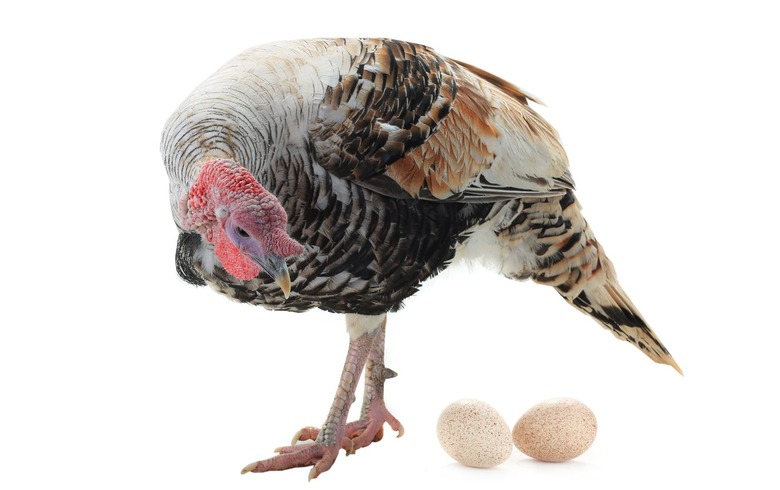Why Don't We Eat Turkey Eggs?
We tend to think of turkeys and chickens as being basically the same type of animal, because their meat tastes similar and they similar (aside from the turkey being a whole lot larger). So it's only natural for us to ask: If we eat so many chicken eggs, then why don't we also eat turkey eggs? The short answer is: Just because they look the same doesn't mean they're actually anything alike.
Let's take a look at chicken eggs: Chickens lay about 300 eggs pear year on a pretty consistent schedule, starting from the age of about 20 weeks. Chickens also average about 3.5 pounds apiece, so they don't take up too much space. They're also bred to not be especially maternal or "broody" (needing to sit on their eggs to incubate them), and the entire egg production industry has been customized to accommodate one animal only: chickens.
Now, onto turkeys: Turkeys only lay about 100 eggs a year, and generally only during the spring. They start laying eggs at an older age than chickens, at about 32 weeks, and average about 17 pounds, requiring a lot more space and feed. Turkeys are also a lot more broody than chickens; separating them from their eggs can be a challenge. And if you were to sell turkey eggs on the market (they are available, they're just not particularly common), they'd retail for about 50 cents each, a lot more than a chicken egg.
So even though turkeys and chickens may look and taste similar, when it comes to egg-laying, they couldn't be more different.
